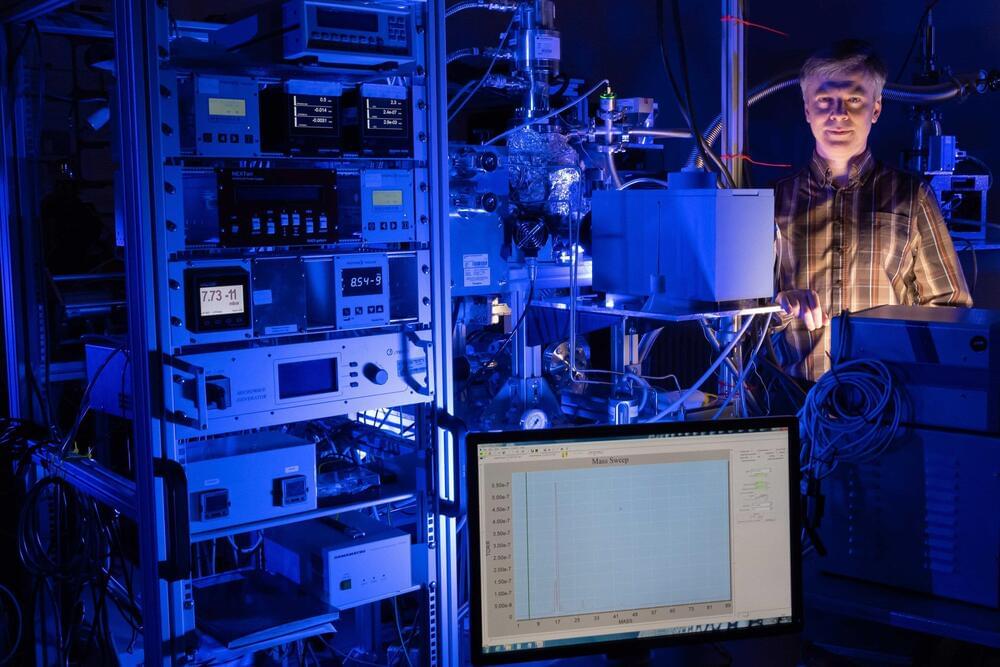A research team led by Dr. Serge Krasnokutski from the Astrophysics Laboratory at the Max Planck Institute for Astronomy at the University of Jena had already demonstrated that simple peptides can form on cosmic dust particles. However, it was previously assumed that this would not be possible if molecular ice, which covers the dust particle, contains water—which is usually the case.
Now the team, in collaboration with the University of Poitiers, France, has discovered that the presence of water molecules is not a major obstacle for the formation of peptides on such dust particles. The researchers report on their finding in the journal Science Advances.
Chemistry in the icy vacuum “We have replicated conditions similar to those in outer space in a vacuum chamber, also adding substances that occur in so-called molecular clouds,” explains Krasnokutski. These substances include ammonia, atomic carbon, and carbon monoxide. “Thus, all the chemical elements needed for simple peptides are present,” adds the physicist.










Comments are closed.